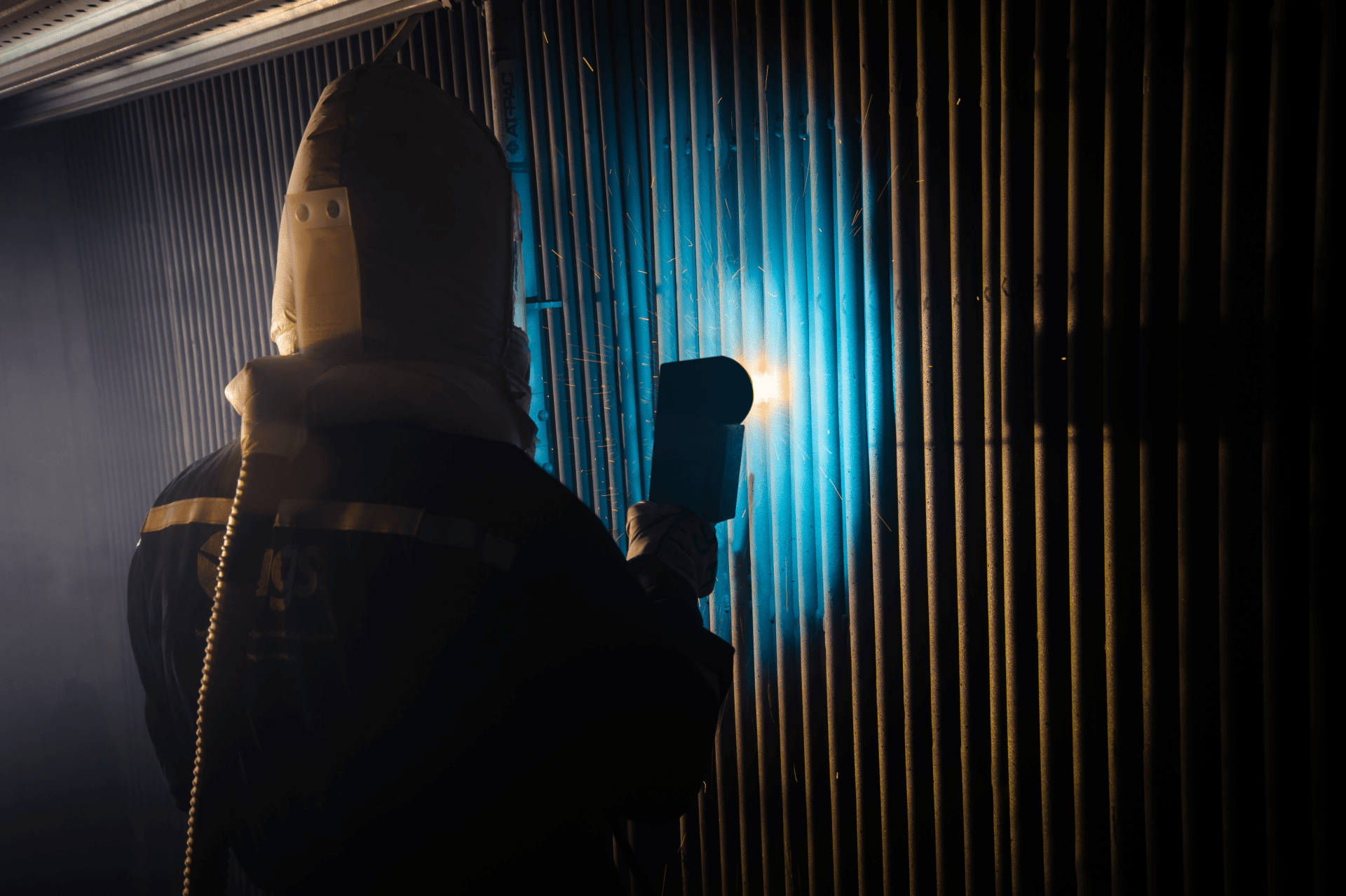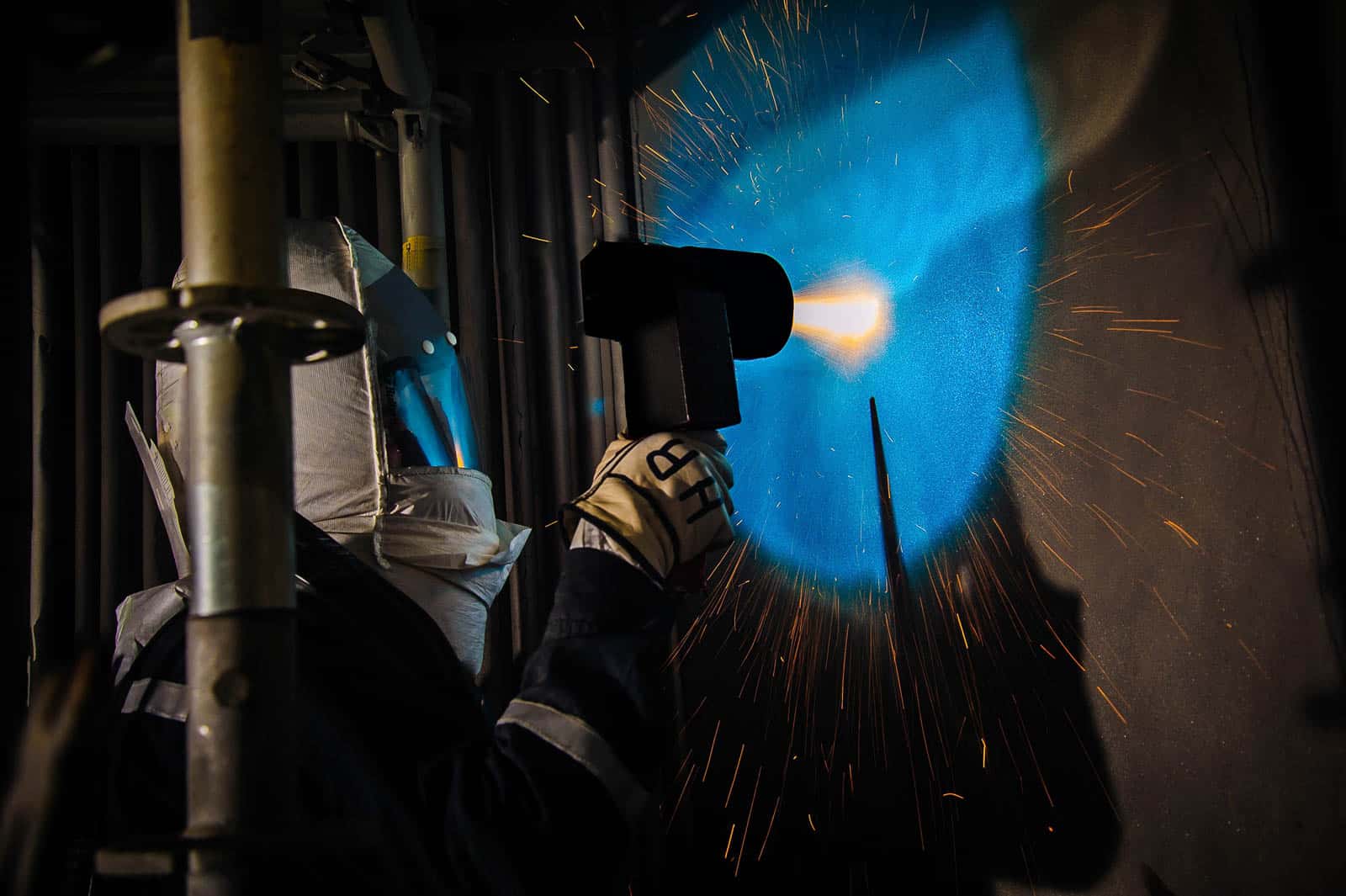Economic and environmental considerations often add renewable fuels to the steam boiler fuel mix. Switching from coal or clean biomass to more corrosive waste biomass, RDF, SRF, municipal or industrial waste, and mixing them in, often leads to accelerated corrosion of boiler pressure parts. IGS has extensive experience in an in-situ metal upgrade of boiler tubes. IGS on-site thermal spray cladding showed itself as a fast, economically viable, and robust measure to prevent or stop Chlorine- and Alkali-induced corrosion of steam boiler waterwalls, superheaters, and reheaters.
Internationally, Waste to Energy (Energy from Waste) and Incineration markets continue to grow in capacity as fossil-fueled facilities decline and nuclear generation is curtailed. The need for incineration capacity for waste materials, whether from municipal solid waste or industrial waste requirements, has increased due to zero landfill and progressive recycling policies. Waste incineration is the only viable alternative to previous waste disposal methods for many European and Japanese markets. With this comes a greater need to burn more corrosive materials, combust at higher temperatures and extract more energy. The reliability burden that this places on operators of plants require a cost-effective solution for boiler tube fireside protection. Where maintenance costs, opportunity costs, and access restrictions may preclude alternative in-situ technologies, thermal spray technology fills a gap in providing new reliable and flexible process and materials technologies for both mid-and long-term protection of waterwall and superheater tubes. Advances in both process and materials technology, specifically for high-chlorine environments, are such that coating performance now approaches the performance of high alloy wrought materials. This is verified through accurate laboratory modeling and numerous applications conducted in new and operating plants around Europe, Japan, and the USA.

Today, more than 2,500 WtE plants are active worldwide, with a disposal capacity of around 420 million tons of waste per year. In 2020, 104 new thermal treatment plants were installed with a total treatment capacity of more than 34.8 million tons per year.
Co-firing of coal and biomass RDF in steam boilers means replacing a part of the original fuel with industrial or Municipal Solid Waste (MSW). This technology allows utilizing existing utility boilers with minor plant modifications to produce energy from renewable resources, such as waste biomass and solid waste. From the utility’s economic point of view, co-firing coal and RDF is attractive because it allows replacing significant quantities of fossil fuel with a lower-cost fuel. Unfortunately, waste co-firing poses unavoidable consequences, like waterwall and superheater corrosion, often fouling and slagging in the upper furnace.
The presence of highly corrosive elements in these waste fuels such as Cl, S, Na, Zn, Pb, Al combined with free H2O and oxidizing conditions often leads to rapid fireside corrosion of boiler tube waterwalls and superheater tubes. Abrasive bed ash immediately stripes off the corrosion products leaving base metal unprotected for further corrosion attack. To minimize the extent of this wastage, and in doing so, increase plant reliability, plant operators will conservatively maintain maximum steam conditions at 400 °C (752 °F) and 40bar(580psi.). Increased demands for energy efficiency and emission regulations requiring a 2 second maintained temperature of 850 °C, or 1100 °C. in the case of halogenated organic substances, further exacerbate tube wastage conditions.
Many coating applications in the Waste-to-energy boilers were largely unsuccessful as an early arc–spray coatings failed rapidly through substrate attack and coating spalls. Having determined that the primary mode of failure experienced in prior WTE coating applications resulted from permeation, in the early 2000s, bespoke thermal spray processes and materials were developed. Our high velocity thermal spray (HVTS) system delivers finer splat size and, thus, a greater number of particles between the coating surface and substrate, therefore significantly reducing the degree of interconnected porosity.
Thermal spray Alloy 625 often fails in this environment. Many high-performance NiCrMoXX alloys exist, with demonstrated wrought alloy corrosion resistance. The challenge in obtaining the same performance from the material’s sprayed coating pertains to the weaknesses introduced due to the spraying process. We have developed a novel technology for alloy modification of the wire feedstock to desensitize the spray droplets to material degradation and reduce coating stress. A further benefit is the introduction of hard phases when required to provide ancillary erosion resistance. The structural considerations of the feedstock are tuned for the HVTS process to ensure a fine homogenous distribution of coating chemistry. Our modified thermal spray material, IGS 5XXX, coupled with the HVTS process technology, produces a dense, low-stress coating.
We determined no coating or substrate degradation in multiple high-temperature lab corrosion studies or in-boiler tests.

Here are some of our references with corrosion prevention in new and revamped fluidized bed boilers.
From 2005, more than 30 waste-cofired CFB boilers were protected by IGS Japan; positive customer experience led Japanese customers to demand fireside pressure part protection in all newbuilt and revamped CFB boilers. Regular inspections show the robust performance of IGS HVTS cladding in the most challenging environments, with up to 80% waste in the fuel mix.
In 2016, almost 1000 m2 of thermal spray cladding were installed in a waste wood co-fired CFB in Sweden in preparation to fuel change. Annual inspections show that corrosion-erosion has been stopped completely. Minor erosion requires refurbishing less than 1% of the HVTS cladding per year. No unexpected shutdowns driven by tube leaks in the protected area registered.
IGS participated in numerous boiler revamps, including changing fuel from coal to biomass, from biomass to waste biomass, and from biomass to RDF. Each case requires an in-depth analysis of changes in the fuel chemical composition and its distribution in the furnace. IGS technical solution center is well prepared for this kind of analysis.
On-site HVTS coating is much faster and more straightforward than other protection technologies. We apply HVTS cladding on the tubes that may be quite close to the minimum allowed thickness. HVTS process does not heat the tubes above 150C, thus excluding the need for PWHT and NoBo involvement. IGS HVTS is several times harder than the base material, can be applied in varied thicknesses, and can be refurbished with time if worn. Thus, boiler pressure parts protected as a part of the boiler refuel project remain protected long-term.
CFB boiler operators rarely have spare time during turnarounds. The cladding projects require extensive experience and coordination from the crew. IGS personnel spend most of their time in boilers and pressure vessels: doing inspections, preparing the surface, and applying the cladding. With experience in more than 2500 boiler projects, we provide our customers with safe execution, a flexible timeline, and reliable cladding. We work around the globe to help our customers prevent tube leaks with no pressure part replacement. Overall, thermal spray cladding helps significantly reduce the costs of a CFB boiler revamp to waste co-firing and its operations. Find the closest subsidiary here and contact us now.
IGS is here to provide information, answer questions and create an effective solution for your needs.